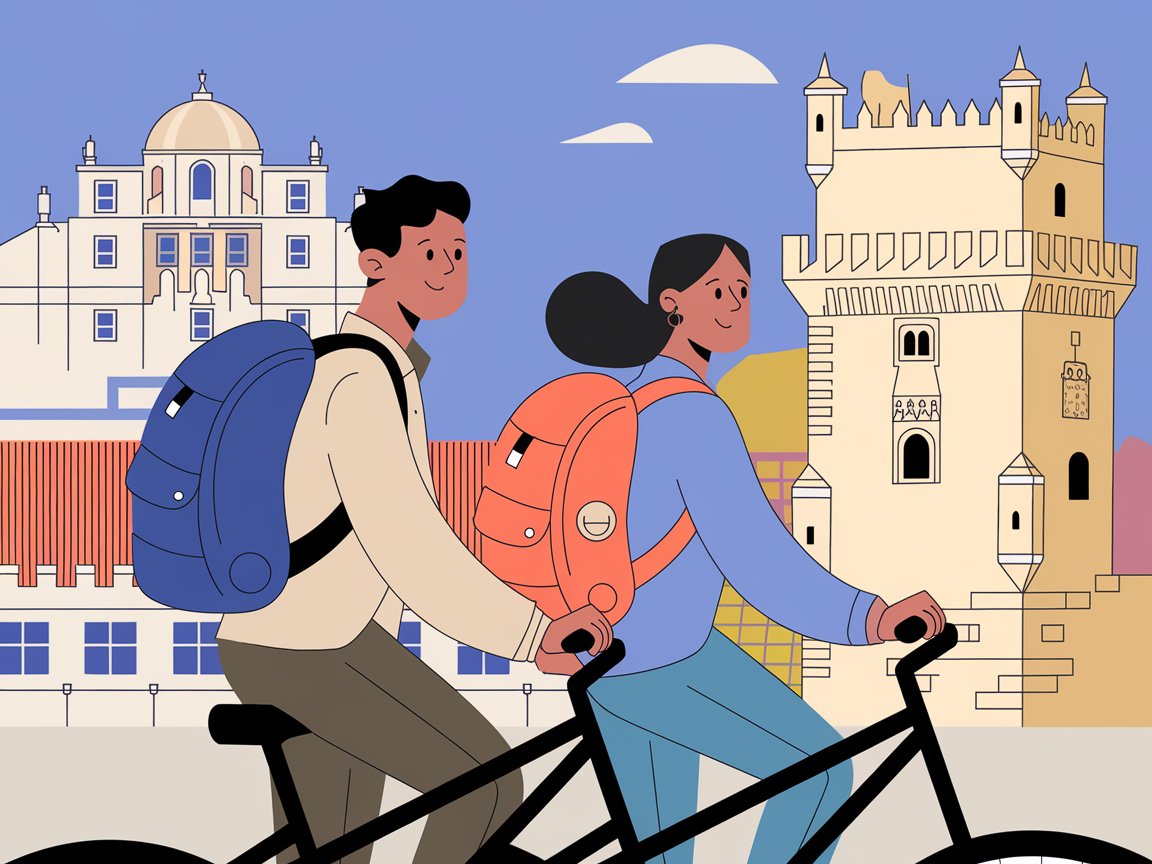The history of cycling tourism in Portugal
The history of cycling tourism in Portugal officially began with promoting cycling culture in regions like Sintra and Cascais, where picturesque landscapes and historical routes quickly became a draw for cycling enthusiasts. Since then, this type of active recreation has come a long way and continues to gain new followers every year.
First, it is necessary to draw a line between cycling and cycling tourism. This distinction became evident when cycling clubs in Lisbon and nearby regions started emphasizing cycling as a way of traveling rather than solely a sport. Around the same time, cycling races began to gain popularity, bringing international cyclists to Portugal’s iconic coastal roads and hilly terrains.
Unlike its “sports” comrade, mass cycling tourism is much less demanding regarding the rider’s training and equipment. Roughly speaking, to engage in cycling tourism, you need to plan a route, such as a ride through the Sintra-Cascais Natural Park, and be in good enough shape to ride the planned distance.
Of course, cycling and cycling tourism cannot help but overlap. It was not by chance that we used the epithet “mass” in the previous paragraph: there is also sports cycling tourism, officially recognized in Portugal. In this sport, participants overcome routes of various difficulty levels, such as climbing the Serra de Sintra trails or traversing the rugged paths along the Costa Vicentina. They can achieve recognition for their accomplishments.
However, if you are just planning to start your cycling journey, it will take a long time before you explore all that Portugal offers. And until then, let’s figure out with https://bike-n-ride.com/ why classic cycling tourism attracts so many fans.
1: Simplicity and versatility
Cycling tourism is suitable for almost anyone. The entry threshold is only the ability to ride. You choose the complexity and length of the route yourself depending on the composition of the participants, their age and level of training, and, of course, external factors—for example, seasonality or weather conditions in regions like Sintra or Algarve.
2: Health benefits
Cycling provides perhaps the most balanced load since almost the entire body is involved during the ride. The legs and buttocks are loaded during pedaling, and while controlling the bike, the arms, abs, and back work. Finally, during the ride, the heart muscle is strengthened, and the blood in the vessels begins to circulate faster, which prevents stagnation and reduces the likelihood of developing varicose veins. This is brief, but we generally have a lot of material on this topic.
3: New places, impressions, and people
A trivial but no less important point. With the help of cycling tourism, you will discover many wonderful places near Cascais, Lisbon, and Porto, the existence of which you either did not know or simply could not get to on foot or on public transport. Finally, no one has canceled new acquaintances, and the more often you go on bike tours, the more likely it is to eventually get into thematic communities.
4: Eco-friendliness
A bicycle is one of the most environmentally friendly modes of transport. It does not need fuel, which means no emissions into the atmosphere. The engine’s roar does not scare away the fauna in places like the Ria Formosa Natural Park. And, unlike a car, it is much more difficult to cause immediate physical harm to the ecosystem on a bicycle.
5: Mobility and compactness
A bicycle allows you to go to places where a car is forbidden, such as Arrábida Natural Park. Wherever you decide to make a stop, you will not have to bother with finding a parking lot (and paying for it, which is essential)—you just have to take care of having a decent lock in advance, which we, of course, also have a corresponding article about.
What else do you need to know?
The weather is one of the key “participants” of any bike trip, so be sure to check the forecast before setting off for a ride in Portugal.
When going somewhere on a bicycle, you become a full-fledged participant in traffic. Observe the traffic rules—this is absolutely necessary for the safety of all participants.
Finally, think about what and how you will eat on the road. An extensive bike tour implies stops at cafes and overnight stays where you can order food, such as Cascais‘s charming waterfront restaurants. Smaller trips, especially those taking place in the bosom of nature, will require preliminary work on this issue.






